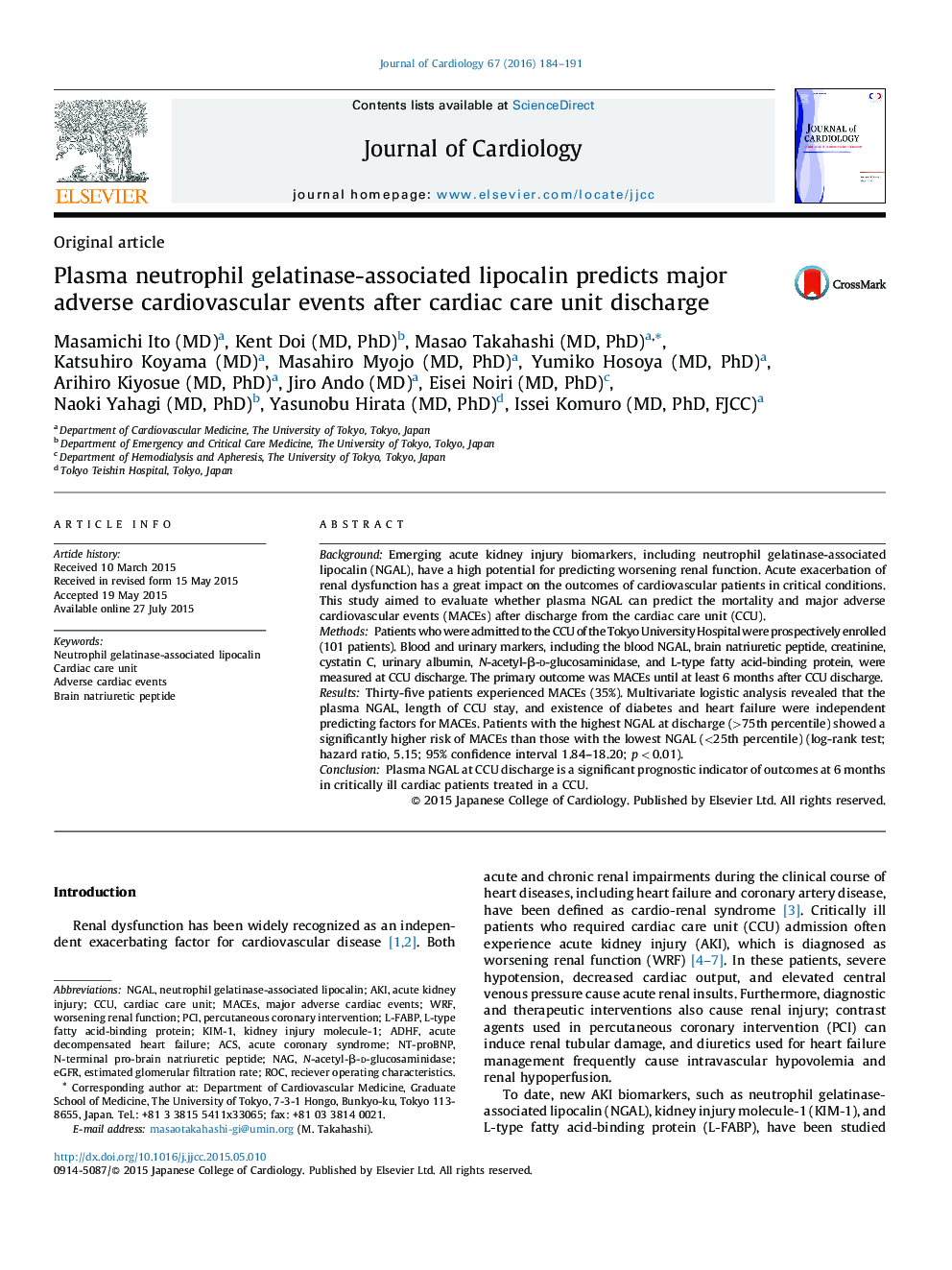| Article ID | Journal | Published Year | Pages | File Type |
|---|---|---|---|---|
| 2962828 | Journal of Cardiology | 2016 | 8 Pages |
BackgroundEmerging acute kidney injury biomarkers, including neutrophil gelatinase-associated lipocalin (NGAL), have a high potential for predicting worsening renal function. Acute exacerbation of renal dysfunction has a great impact on the outcomes of cardiovascular patients in critical conditions. This study aimed to evaluate whether plasma NGAL can predict the mortality and major adverse cardiovascular events (MACEs) after discharge from the cardiac care unit (CCU).MethodsPatients who were admitted to the CCU of the Tokyo University Hospital were prospectively enrolled (101 patients). Blood and urinary markers, including the blood NGAL, brain natriuretic peptide, creatinine, cystatin C, urinary albumin, N-acetyl-β-d-glucosaminidase, and L-type fatty acid-binding protein, were measured at CCU discharge. The primary outcome was MACEs until at least 6 months after CCU discharge.ResultsThirty-five patients experienced MACEs (35%). Multivariate logistic analysis revealed that the plasma NGAL, length of CCU stay, and existence of diabetes and heart failure were independent predicting factors for MACEs. Patients with the highest NGAL at discharge (>75th percentile) showed a significantly higher risk of MACEs than those with the lowest NGAL (<25th percentile) (log-rank test; hazard ratio, 5.15; 95% confidence interval 1.84–18.20; p < 0.01).ConclusionPlasma NGAL at CCU discharge is a significant prognostic indicator of outcomes at 6 months in critically ill cardiac patients treated in a CCU.
